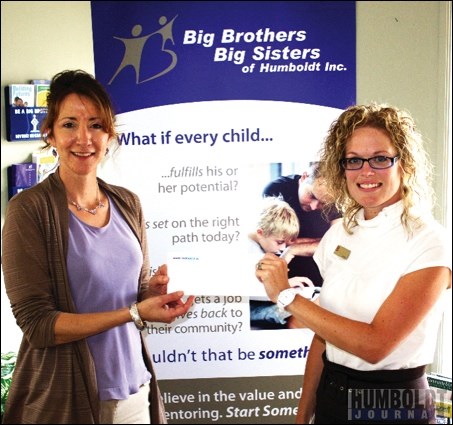After an eventful centennial year, the City of Humboldt has endorsed September as the official Big Brothers Big Sisters (BBBS) month.
"Our biggest responsibility is being accountable to the public," said Stacey Poss, executive director for Big Brothers Big Sisters Humboldt. "This year we're looking to increase capacity and serve more children in the rural areas."
BBBS Humboldt is a volunteer program that matches individuals over the age of 18 with youth between the ages of six and 18. The program is geared towards providing youth with one-on-one social support.
"Everybody could use mentorship," said Poss. "It's about uplifting people and encouraging people."
With the continuation of their centennial theme, BBBS Humboldt will be spending September focusing on increasing their in-school mentorship. The program entails mentors visiting their mentees at school during their lunch break.
"It gives the kids something to look forward to during the day," said Dennis Spence, principal of St. Dominic Catholic Elementary School. "We see their confidence grow and we see a definite friendship and bond that wasn't there before."
The problem is, there are at least 30 littles in the program and not all of them have matches. Those without matches are on waiting lists. If there aren't enough volunteers, some kids will never get matched.
"We're looking for mentors," said Poss, "September is our month to recruit. With our in-school mentoring program, children will be more successful in life."
There are two categories to the in-school mentoring program: the teens, who are mentors between the ages of 15 and 18, and the adults, who are over 18.
"It's a tremendous program in terms of providing positive role models," said Dave Hill, principal of Humboldt Public Elementary School. "They're willing to tell their friends and they need to feel special."
While the program in Humboldt does not engage high-risk youth, they do assist any children having family or social troubles. This can include anything from divorce to bullying to friendship troubles.
In the case of eight-year-old Rebecca Hueser, those troubles involved a lack of companionship.
"Rebecca has no siblings close to her age," said Lynell Hueser, Rebecca's mother. "She needed an extra person."
Rebecca has been a little for about a year. Her mother put her in the program so that she would have the social support Lynell couldn't always provide while caring for Rebecca's infant brother.
"Her Big Sister takes her to hockey games, the swimming park, the library. Rebecca got to do stuff with her that I didn't always have time to do," said Lynell.
Rebecca and her Big Sister see each other whenever their schedules permit, which can be once a week or once every two weeks. There are no rules. Each big can commit whatever amount of time they're able to provide.
"She's nice and funny," said Rebecca. "I get to talk to her and tell her things."
According to Hall, communication is one of the biggest benefits of the BBBS program.
"Once you build that trust with kids, they tell you everything and you can help them," said Hall.

.png;w=120;h=80;mode=crop)


